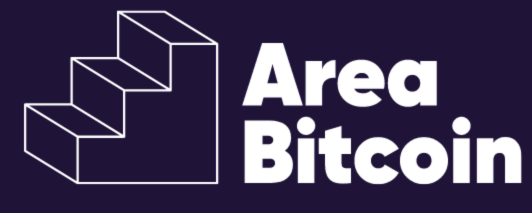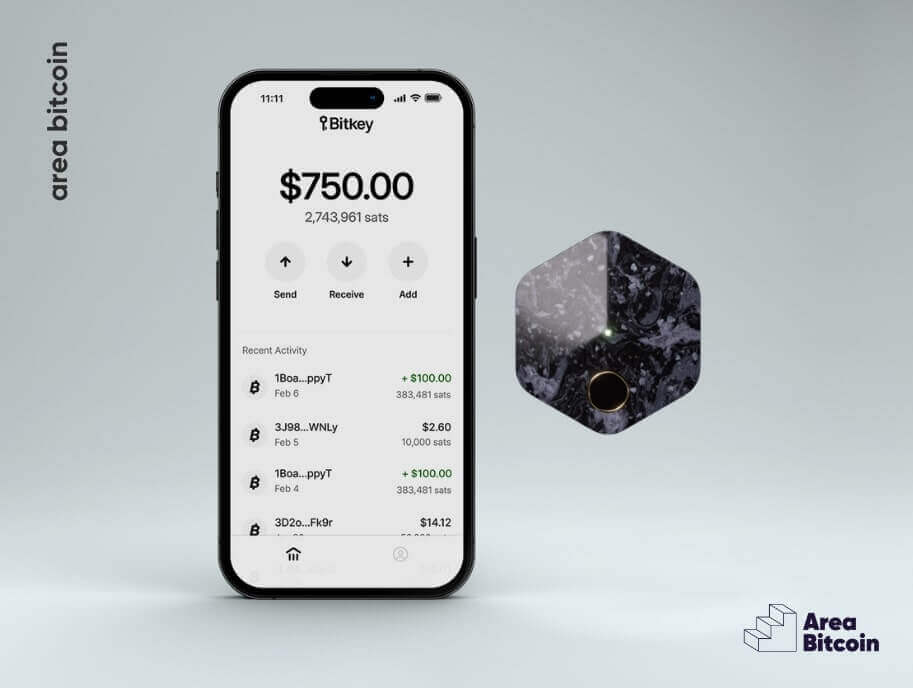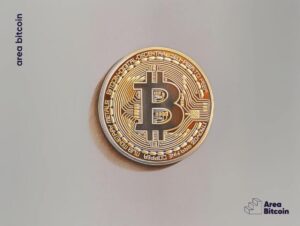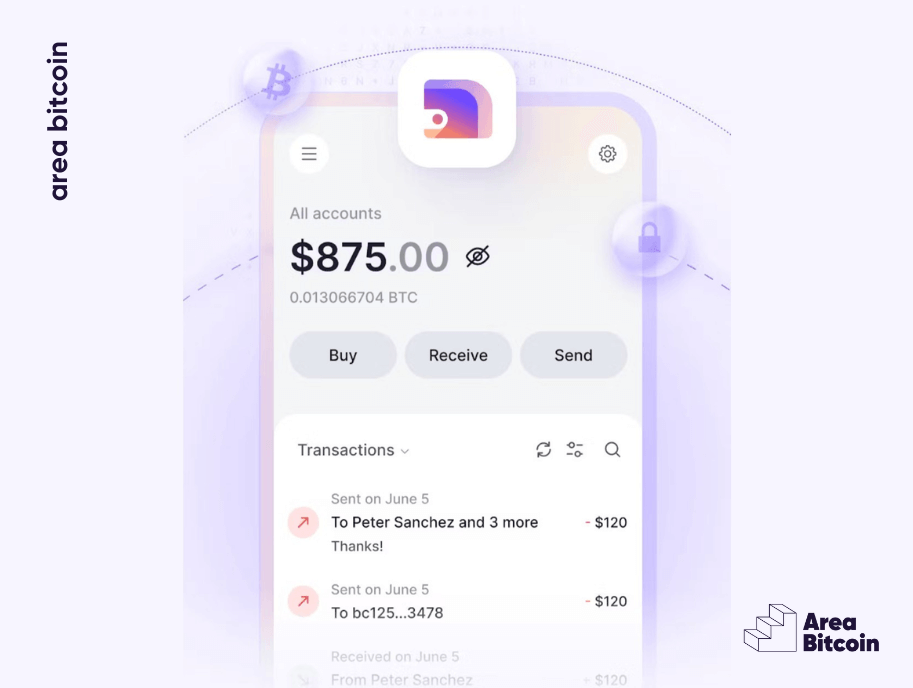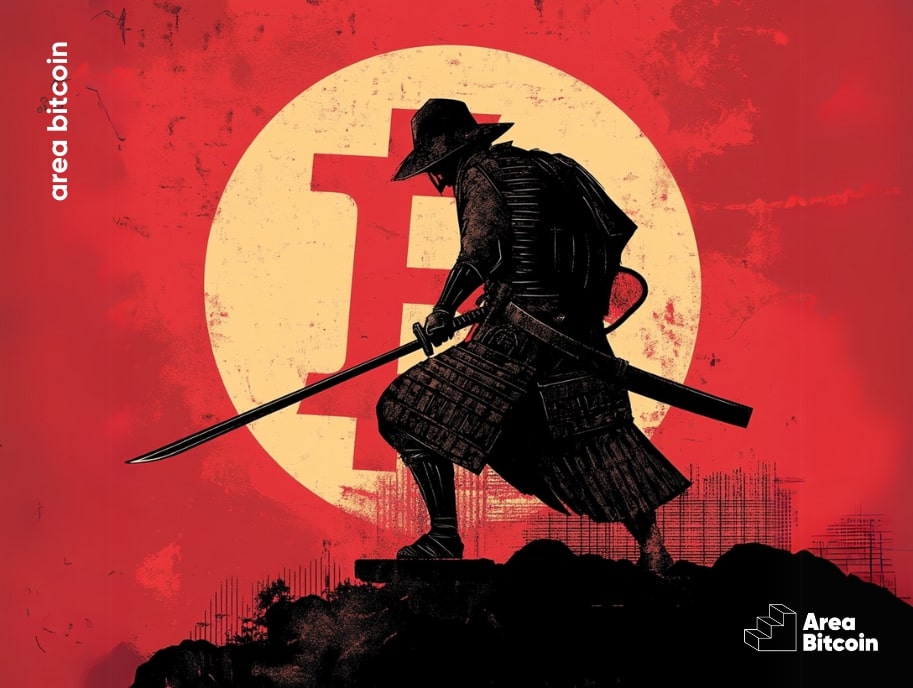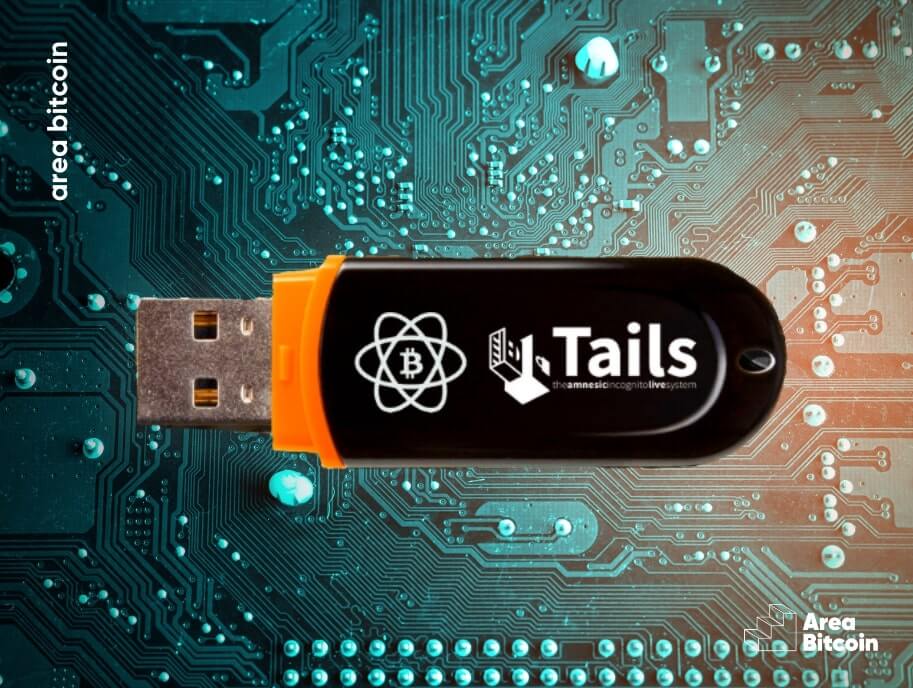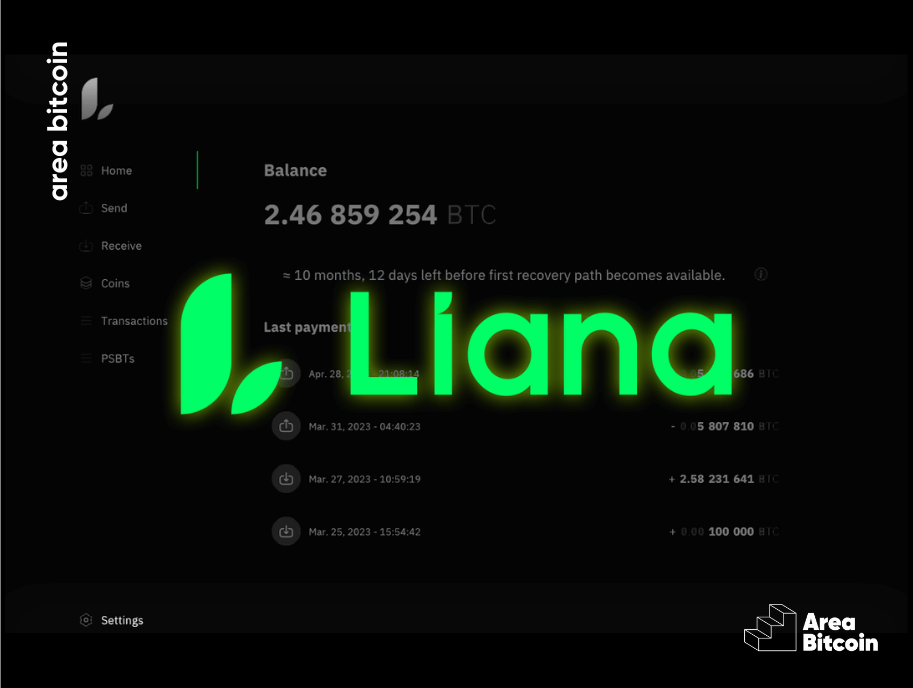The most important aspect that a Bitcoiner should value is security, both personal and for their Bitcoin assets. Therefore, when starting to buy Bitcoin, the main question that arises is which wallet is the best for storing BTC.
The Bitcoin industry recognizes this as a point of interest and importance for users. It’s no surprise that the market for Bitcoin-only wallets has been growing recently. By saying that, one of the latest releases is BitKey, a Bitcoin hardware wallet created by a company founded by former Twitter CEO Jack Dorsey.
In this article, we will learn more about BitKey, its functionalities, and characteristics.
Come with me!
Table of Contents
What is BitKey?
BitKey is a cold storage hardware wallet developed by Block, a global technology company focused on financial services.
Block is led by former Twitter CEO Jack Dorsey and includes Square, Cash App, TIDAL, and TBD. The group’s goal is to build tools that enable more people to access the economy.
How did BitKey originate?
Dorsey left his position as CEO of Twitter in 2021 specifically to focus on Bitcoin-related projects, which he considers the most important work of his life.

Therefore, shortly after stepping down as Twitter CEO, Jack Dorsey announced in June 2021 that Block was developing a Bitcoin wallet.
In December 2023, BitKey was officially launched in 95 countries and began shipping to users in March 2024.
Hexagonal Shape
BitKey stands out with its hexagonal shape, quite different from other hardware wallets on the market, and it lacks a screen to confirm information.
The device, named “Rocky,” includes a fingerprint reader and a USB-C port for charging. But don’t worry about that now; we’ll explain everything later.
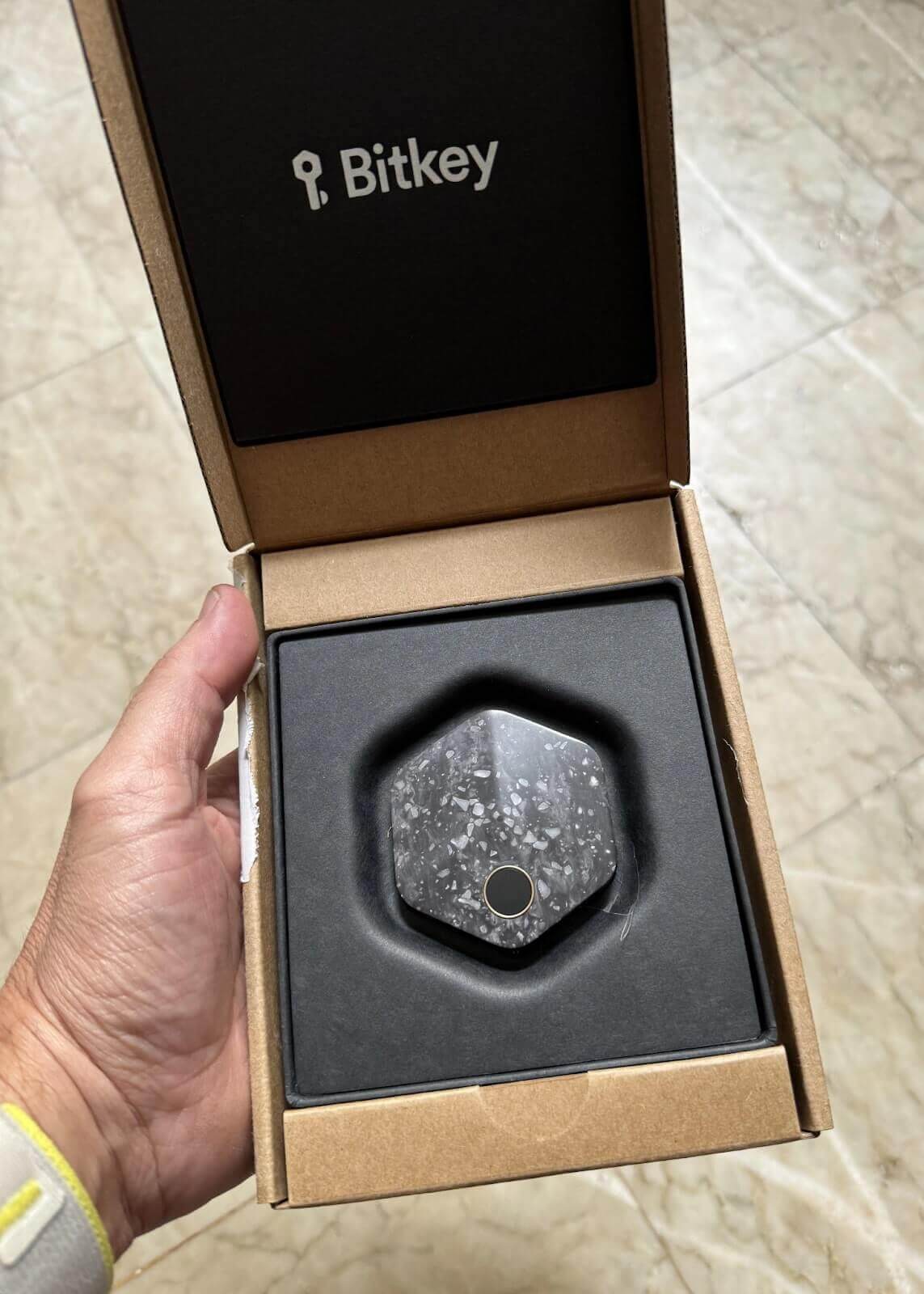
Additionally, BitKey is not just a physical device; there is also a mobile app and a set of recovery tools in case the user loses the phone, the physical wallet, or both.
Cool, right?
In the box, besides the device, there is a guide and a USB cable for charging it.
How does BitKey work?
BitKey operates as a cold storage self-custody wallet, meaning users retain possession of their private keys, which are necessary to move their bitcoins.
As a result, the company that developed the wallet does not store any user information and cannot access users’ balances.
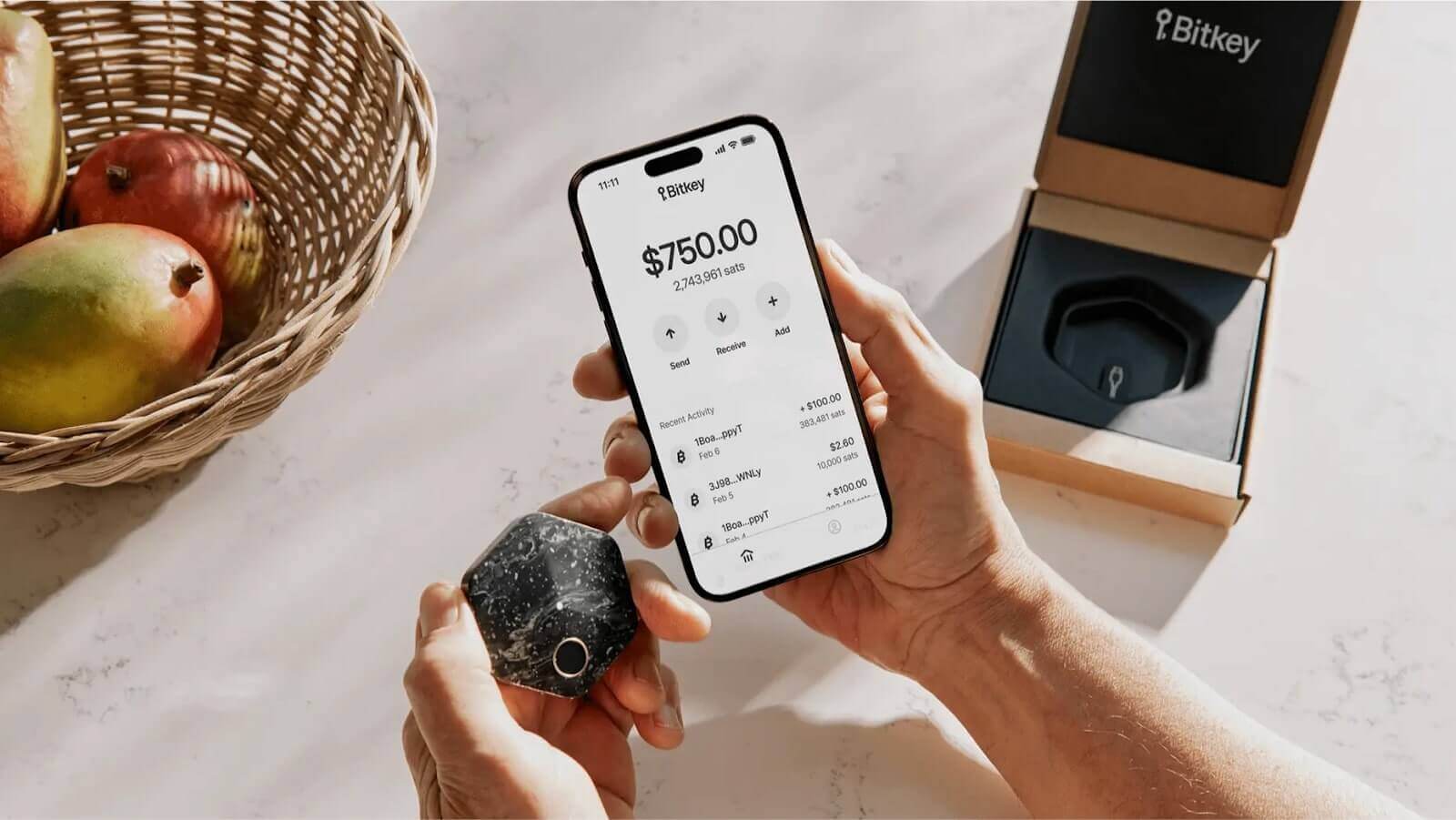
Furthermore, this cold storage wallet includes a physical device, a mobile app, and recovery tools in case the user loses access to the app or the physical wallet. With these features, the wallet aims to be user-friendly for both beginners and advanced bitcoiners.
Let’s explore its main features.
1. Open source software and hardware
BitKey’s code is open source and licensed under the Commons Clause, which restricts the use of BitKey code to projects that do not offer a paid commercial product or service. The code is accessible on GitHub.
The wallet being open source means that anyone can audit BitKey’s code to understand how it operates and confirm that it doesn’t include features that would allow Block to control clients’ funds. It also allows users to identify and report security vulnerabilities.
These are important attributes and characteristics for any self-custody wallet and represent a significant advantage for BitKey.
2. Send and receive Bitcoin On-Chain
BitKey is a Bitcoin-only wallet, meaning it does not support other currencies. This focus enhances security and concentrates on the essentials.
With BitKey, you can send and receive bitcoins to and from any other address. The wallet’s intuitive interface simplifies transaction management, allowing users to select the transfer fee based on the urgency of the transaction: priority, normal, or slow.
3. Custom spending limit
In the BitKey app, users can set a daily spending limit for Bitcoin. This security feature is particularly useful as it helps control and protect fund usage.
By establishing a daily spending limit, users can prevent unwanted or excessive transactions, adding an extra layer of protection to their financial activities.
4. Multisig system
BitKey does not provide a seed phrase—those 12 or 24 words. Instead, the wallet utilizes a multi-signature setup with a 2-of-3 system, eliminating the need for long and complicated seed phrases.
Two keys are provided to the user. One remains in the mobile app for transaction and security management, while the other is stored offline on the physical device. This extra key enhances security and acts as a recovery option if the mobile device is lost.
Additionally, a third key is held by the BitKey developer company. This key facilitates ongoing mobile transactions and offers a fail-safe recovery option in case the physical device is lost.
With the 2-of-3 system, the company cannot move any funds without the user’s consent.
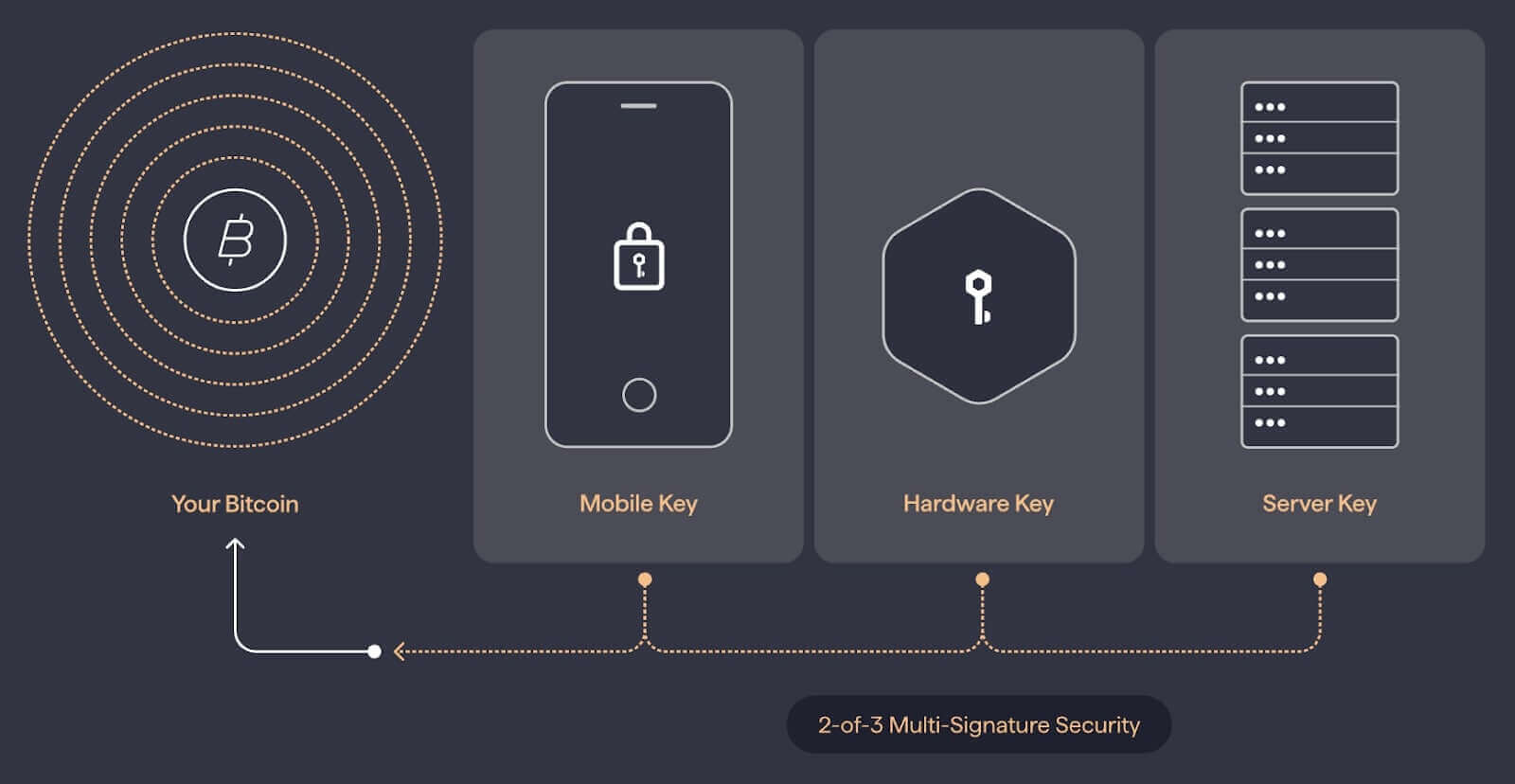
5. Fingerprint sensor
A unique feature of the BitKey physical wallet is its lack of an interactive screen or buttons, except for a single button used for fingerprint authentication.
The wallet is designed this way because all interactions between the physical device and the mobile app occur via NFC.
Additionally, the sensor allows you to store up to three fingerprints on the wallet, enabling access for another person or different fingers. This feature lets you enhance the security of your wallet by registering multiple fingerprints.
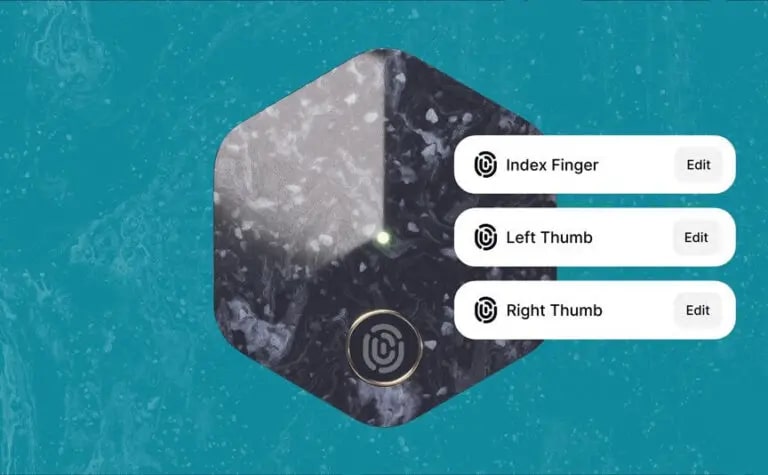
But, what is NFC?
NFC (Near Field Communication) is a short-range wireless communication technology that allows for the exchange of data between devices in close proximity, typically within about 4 centimeters.
It evolved from RFID (Radio Frequency Identification) technology and is commonly used in smartphones, credit cards, public transport tickets, and other electronic devices.
Therefore, to access the balance protected by the hardware, the user simply needs to unlock the device with their fingerprint and bring it close to their phone.
Since the device and the app connect via this technology, there is no need to connect the device to a computer. This avoids potential exposure to viruses that could compromise the wallet.
Isn’t it amazing?
7. NFC Chip for transfer between app and wallet
Using the NFC chip to pair the hardware with the app introduces another convenience: simplified balance transfers between devices.
8. Mobile app recovery
If your phone is lost, stolen, or damaged, simply download the BitKey app on a new phone and log into your cloud account via Google Drive or iCloud.
Once you’ve logged into your cloud account, unlock your hardware wallet and bring it close to the new phone. This action will unlock the encrypted mobile key backup and allow you to recover your wallet on the new device.
9. Hardware wallet recovery
Now, if the hardware device is lost, stolen, or damaged, you’ll need to initiate the recovery process through the app, which triggers a 7-day security waiting period.
During this period, you’ll receive security notifications via SMS or email to confirm that you initiated the hardware recovery.
After the security waiting period concludes, you can set up a new BitKey hardware device, pair it with your phone, and transfer your wallet balance to the new keys.
Alternatively, you can expedite the process using trusted contacts.
10. Trusted contacts
Trusted contacts are set up in the app when you first configure your BitKey. These contacts must download the BitKey app and agree to help you access your funds if you lose your wallet.
11. Recovery without the app and BitKey device
But, don’t worry! If you lose both your phone and the hardware device, there’s still a way to recover your assets!
Simply download the BitKey app on a new phone and share a verification code with your trusted contacts to confirm your identity.
Once verified, you can recover your encrypted cloud key and proceed to replace your hardware device.
Partnership with Coinbase and Cash App
In 2023, BitKey announced a partnership with two major platforms, Coinbase and Cash App. This collaboration enables users to purchase Bitcoin directly through BitKey, with the balance automatically transferring to the user’s self-custody.
To use this feature, users must either create an account or log into an existing account on Coinbase or Cash App. This is facilitated through an integration within the app.
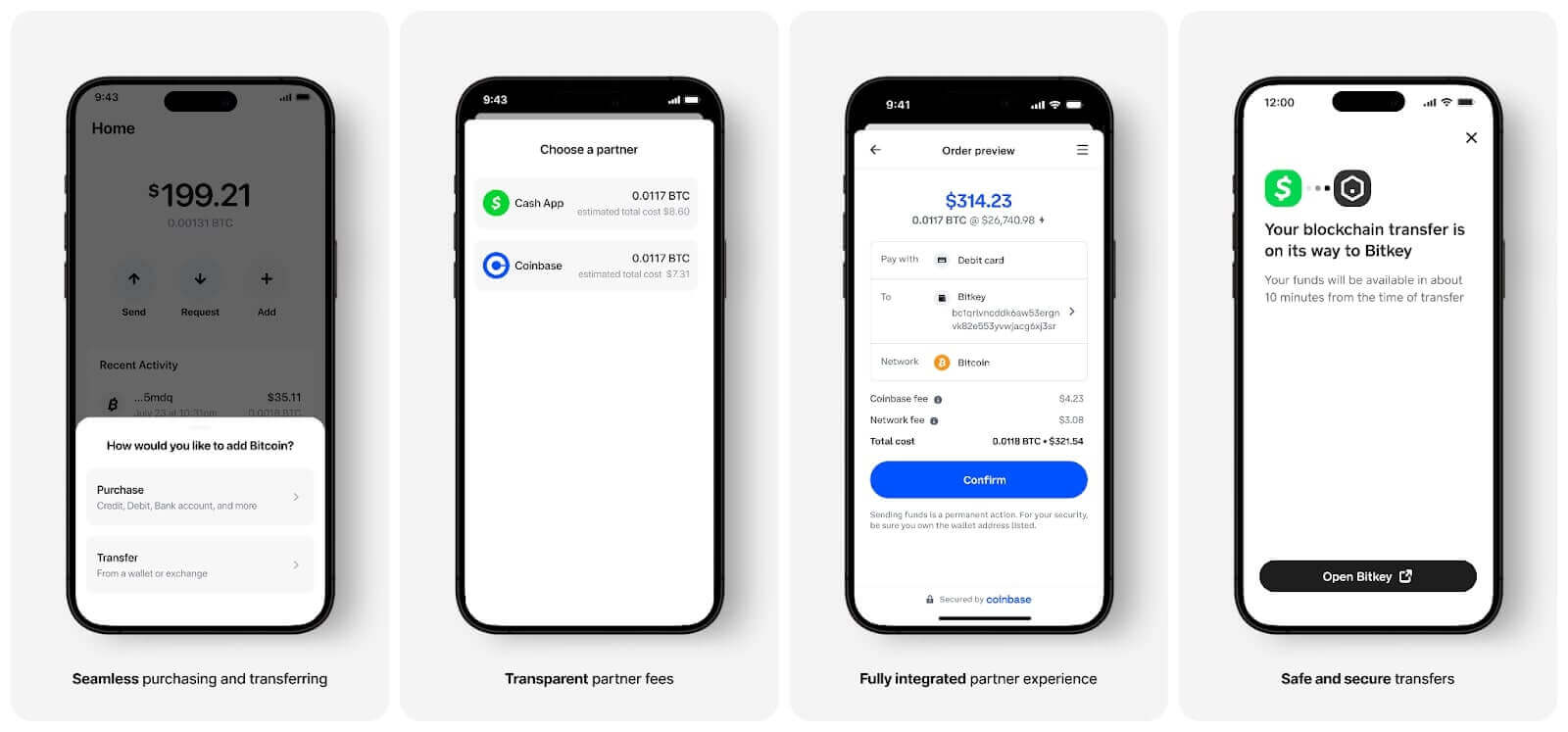
This functionality allows BitKey users to buy Bitcoin and immediately initiate the transfer to their BitKey from Coinbase in various global markets, including the US, Canada, UK, Brazil, and Australia.
Additionally, users in the US can perform the same operation from Cash App.
Where to buy BitKey and what is its price?
Currently, BitKey is available exclusively through the official website, with delivery options to over 95 countries.
The BitKey wallet is priced at $150, plus applicable taxes, shipping, and duties. Be mindful of additional costs and delivery times, as these may vary by country.
Pros and cons of the BitKey
As we’ve explored in this article, BitKey introduces features not previously seen in other Bitcoin wallets. However, like everything in life, it comes with its pros and cons.
Cons
- A significant concern with BitKey is the dependency users develop on Block during the recovery and backup of funds. With the multi-signature system, one of the three keys is kept on Block’s server, and the methods for recovering the app or device are also tied to their server.
- The device lacks a display, which underscores the need for users to trust Block, as keys are not visible on any screen for verification.
- Another drawback is the wallet’s lack of interoperability. Typically, when purchasing a hardware wallet, users can employ third-party software if they distrust the wallet’s server. With BitKey, this option is unavailable; users are limited to Block’s server.
- There is no integration with the Lightning network. While other hardware wallets also lack this feature, Block could have distinguished itself by supporting the Lightning network.
Pros
Despite the concerns noted earlier, BitKey excels in other aspects:
- The integration with partner companies for purchasing Bitcoin and automatically transferring it to the wallet simplifies the process of maintaining self-custody. However, users should be aware that this feature could leave traces, potentially reducing privacy.
- BitKey offers a variety of recovery options, which is quite distinct from other wallets on the market. This provides greater peace of mind for users who are often concerned about losing their funds. The multisig system employed by BitKey adds multiple layers of security, enabling users to recover their wallet effectively. Therefore, you would only lose your funds if you failed to add trusted contacts, lost your phone, forgot your iCloud/Google password, and lost the hardware wallet—all at the same time.
How to recover balances if Block ceases to exist?
Since BitKey operates with a 2-of-3 multisig system, you need two of the following to maintain or recover control of your funds:
- Mobile key – A key stored in the BitKey app on your phone.
- Hardware key – A key stored in the hardware wallet device.
- Server key – A key stored on a server operated by Block Inc.
If you lose the second key and the third key, which is managed by Block, becomes unavailable, you will lose the ability to spend and move your balance.
To prevent this scenario, it’s crucial to have a backup of the hardware key, know how to configure another application (another wallet) with 2-of-3 multisig, and possess any other relevant information, such as derivation paths.
Conclusion
BitKey was created and designed to offer a simple and user-friendly solution, primarily aimed at less technical users, introducing new wallet recovery options.
However, given the significant reliance on Block’s servers, it’s important to consider that this might not be the ideal wallet for storing large amounts of Bitcoin.
I hope this article has given you a better understanding of Jack Dorsey’s latest innovation for Bitcoin.
Don’t forget to share this article on your social networks, and opt out!
Share on your social networks:

Founder of Area Bitcoin, one of the largest Bitcoin education projects in the world, she is a marketer, passionate about technology, and a full-time hands-on professional. She has participated in major Bitcoin conferences such as Adopting Bitcoin, Satsconf, Surfin Bitcoin, and Bitcoin Conference.
Did you like this article? Consider buying us a cup of coffee so that we can keep writing new content! ☕
